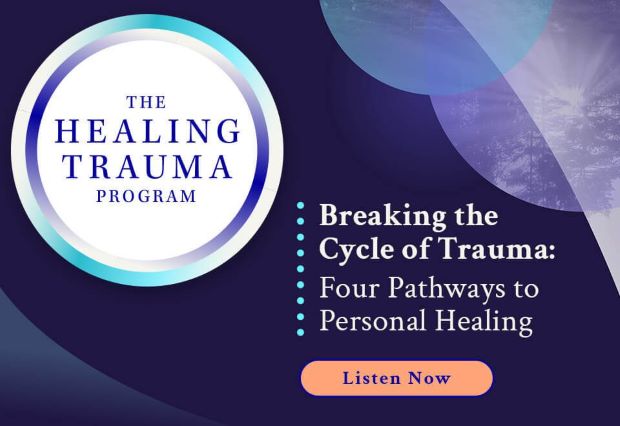During the recent 2023 Mental Health Super Summit Dr. Richard Hill explained the concept of “coercive control”, how it manifests and its devastating effects on children and adults. This is a form of insidious, creeping control over another by a perpetrator (usually a parent or partner) that Richard describes as “a slow whittle”. He drew on the definition of Dr. Emma Katz, a world authority in the area, to explain that coercive control involves the progressive “controlling of somebody else’s whole life”. It takes away their normal autonomy and sense of freedom. The control that is exercised is “wide-ranging and persistent”. If the controlled person resists or refuses to conform they are punished. The net result is that the controlled person lives a constrained way of life to avoid punishment.
In her book, Coercive Control in Children’s and Mother’s Lives, Emma explains that children and adult survivors even after they are able to break free from the perpetrator must engage in a “sustained battle for safety and recovery”. Through her research with many victims-survivors, she has become convinced that support and “professional Interventions” are needed to facilitate healing and recovery.
Richard explained that the perpetrator of coercive control keeps the controlled person “off balance”, continuously confuses them and progressively isolates them from others (in part, so that they can’t tell others what is happening to them). He argues that the controlled person can begin to question their own sanity (because of “gaslighting”) and loses both self-esteem and self-determination. Even when they are able to flee, they may fear for their safety because of stalking by the perpetrator who may continue to engage in “post-separation abuse”.
Even seeking assistance from the law is fraught with risk and difficulty for victims-survivors of perpetrators of coercive control. In her book, Women, Intimate Partner Violence and the Law, Heather Douglas (drawing on case studies) explains that perpetrators often use the law against their victims, and that victims-survivors require very high levels of “endurance, tenacity and patience” to obtain help and protection through the law. She highlights “the failure of the legal system to provide safety for women and children” on many occasions.
Jess Hill, Richard’s daughter, in her well-researched book, See What You Made Me Do: Power, Control and Domestic Violence, supports the view that “abuse is often reinforced by the justice system they trust to protect them” as victims-of domestic violence. She suggests that instead of questioning why a woman didn’t leave her abusive partner, we should be asking, “Why did he do it?”. She offers ways forward to reduce the abuse and fear resulting from domestic violence that is so prevalent in Australian homes.
Jelena Dokic’s experience – a classic example of coercive control by a parent
In a previous post, I spoke of the physical abuse suffered by Jelena Dokic at the hands of her father, Damir Dokic. Jelena, in her second memoir, Fearless: Finding the Power to Survive, also details what amounts to coercive control by her father – “wide-ranging and persistent control”. Her father used physical punishment to control her behaviour (e.g. punishing her for not winning). He restricted her access to people and attempted to isolate her. He continuously called her demeaning names such as “cow” and “whore” and took control of her money, demanding she sign over her winnings and savings. Her father also took all her trophies and sold them. On one occasion, he publicly smashed a crystal runners-up trophy because Jelena did not win the tennis competition.
Jelena escaped from her family in 2002 (aged 19 years). Despite this break away, she suffered post-separation abuse of her freedom. She was effectively stalked by her father and mother. They would turn up unannounced at WTA events she was competing in and try to coax her to “return home”. WTA security protected Jelena and refused entry to her father. However, during the US Open in 2003, her mother turned up at her hotel and insisted that she sign over the family home in Florida to her father.
In the previous post, I also described how Jelena was coached and supported by Australian tennis great Lesley Bowrey in her younger years, achieving outstanding success as a junior on the global stage. Lesley believed in Jelena and what she could achieve and showed her respect and kindness – a stark contrast to the behaviour of her father. However, eventually, her father insisted that she sack Lesley as her coach which shattered Jelena’s “happy world” and left her devastated.
The continuous belittling, dismissing her achievements and pervasive control took its toll on Jelena’s mental health and she suffered from a loss of self-esteem and a feeling of “not being good enough”. She felt trapped by her father despite being physically separated from him. She experienced “thoughts of suicide” because she could see no way out of her traumatic situation (her “entrapment”).
Coercive Control of Jelena’s mother
Jelena and her mother, Ljiljana Dokic, were estranged because her daughter felt that her mother had failed to help and protect her against her father’s physical abuse and coercive control and the trauma she experienced. However, in her Fearless memoir, Jelena explained that they had restored their relationship after she found it in herself to forgive her mother for her lack of protection. She came to understand that her mother too suffered at the hands of her father. She was also beaten into submission and suffered coercive control.
Jelena’s father made all the key decisions impacting her mother. He determined where they lived, controlled all the money (mainly Jelena’s winnings) and forced her to undertake unpleasant tasks against her will. Jelena’s mother was forced to work to provide herself with some independent income.
Reflection
In her memoir, Jelena acknowledged that she had not forgiven her father for his physical abuse and coercive control. She had come to realise that her mother too was controlled by him and Jelena was able to find a level of forgiveness towards her mother following this realisation.
In an earlier post, I provided a reflection process for dealing with resentment and anger. It facilitates looking at what was happening for the other person in a conflict/abuse situation. Among other things, it asks you to think about what was happening for the other person in terms of self-esteem and identity. It also requires you to think about the pressures and stresses experienced by the other person, including their life experiences and familial influences. As Bruce Perry and Oprah Winfrey suggest, an important question is, “What Happened to You?”.
By adopting the other person’s perspective, you are better able to be empathetic and find forgiveness. Jelena was able to do this in relation to her mother, but not her father. Understanding and forgiveness may come with an appreciation of the influences that shaped her father’s life, including poverty and living in war-torn Croatia as a parent and partner, becoming a refugee in Australia and being beaten by his parents as a child. Jelena’s hurt and pain at the hands (and mind) of her father are deep and will take a lifetime to heal.
As we grow in mindfulness, through reflection on our own life and significant formative events, we can appreciate the positive people and events in our life that helped to shape who we are and what we have achieved. Jelena’s story, recorded in her memoirs, is a great source of inspiration for overcoming life’s challenges and appreciating what we do have.
________________________________
By Ron Passfield – Copyright (Creative Commons license, Attribution–Non Commercial–No Derivatives)
Disclosure: If you purchase a product through this site, I may earn a commission which will help to pay for the site and the resources to support the blog.

